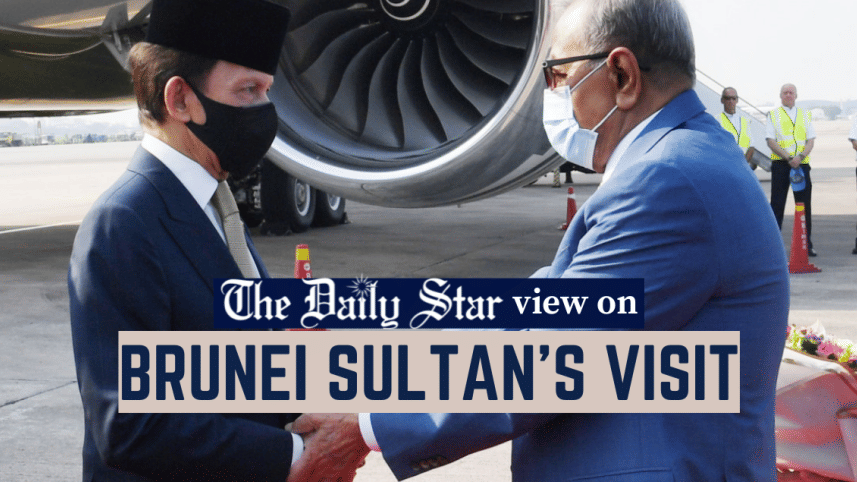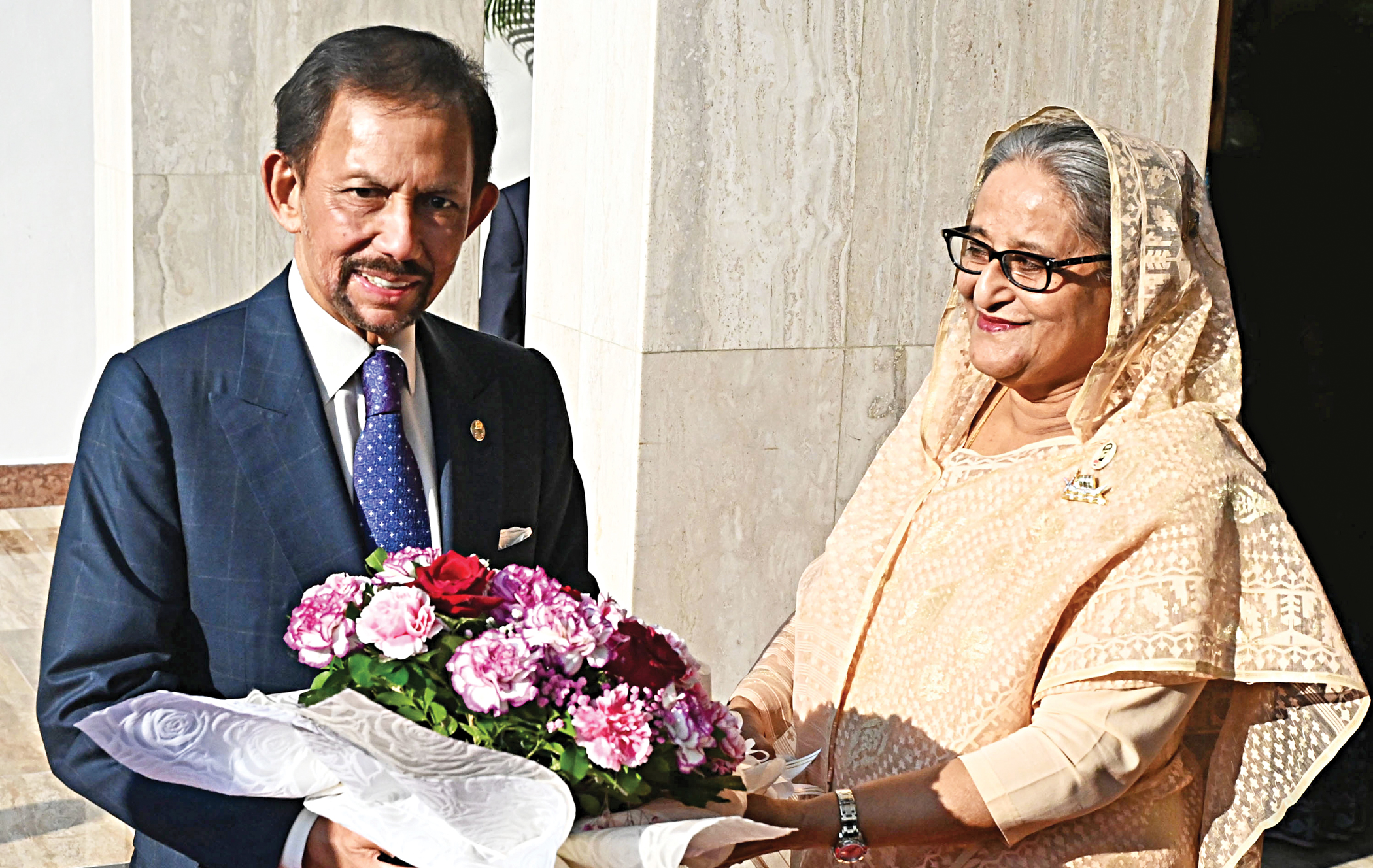A new height in Bangladesh-Brunei ties

We welcome the spirit of friendship and collaboration that marked the first-ever visit of Brunei Sultan Hassanal Bolkiah Mu'izzaddin Waddaulah in Bangladesh, which culminated with the signing of several important agreements. At a meeting between Prime Minister Sheikh Hasina and Brunei sultan on Sunday, the two countries signed a deal and three memorandums of understanding (MoUs), including one on a long-term collaboration in the energy sector, particularly in the supply of liquefied natural gas (LNG) and other petroleum products to Bangladesh. It comes at a time when Bangladesh is searching for alternative sources of energy amid a spike in fuel prices as well as supply-chain disruptions in the wake of the Russia-Ukraine war.
Like Bangladesh, Brunei has been also focusing on diversifying its economy, with an eye to the future. Both countries can benefit enormously for increased collaboration, although bilateral trade between the two is far below its potential at the moment.
The sultan's visit is a reciprocal one after Sheikh Hasina's state visit to Brunei in 2019. Besides the energy agreement, the two leaders also signed MoUs on recruitment of workers from Bangladesh and recognition of certificates for the seafarers, in addition to a deal on direct flights between the two countries. Bangladesh has a major stake in the labour agreement. About 20,000 Bangladeshis are currently working in Brunei. The possibility of more recruitments is an aspect that the government will certainly like to explore, while making sure the interests of workers are protected through a fixed minimum wage, insurance and reducing recruitment costs. For this to benefit all sides, it is also essential that the recruitment process is managed in a transparent and orderly manner.
Bangladesh and Brunei share strong commonalities in terms of faith, tradition and a shared vision of peace and prosperity. Brunei is said to be the third-largest oil producer in Southeast Asia, and also the ninth-largest producer of LNG in the world. But like Bangladesh, it has been also focusing on diversifying its economy, with an eye to the future. Both countries can benefit enormously for increased collaboration, although bilateral trade between the two is far below its potential at the moment. Some of the areas where trade and cooperation can be increased were highlighted during the delegation-level meeting on Sunday, including maritime connectivity, agriculture, livestock and fisheries, training and exchange of services in health sector, defence and security, disaster response, humanitarian operations, information technology, etc. Bangladesh also invited Brunei to invest in its special economic zones.
For Bangladesh, diversifying its sources of energy including LNG is vitally important, as it relies heavily on energy imports for power generation. In that, Brunei offers a potentially stable and long-term alternative. With the global energy market going through unprecedented volatility since the Russia-Ukraine war, and Bangladesh facing a crisis with rising demands for energy but shrinking ability to procure or produce it, it is all the more important that the country has as many options as possible.
With the sultan's visit, Foreign Minister Abdul Momen said that Bangladesh's bilateral relationship with Brunei has reached a "new height". We do hope this will result in a new, elevated level of engagement in the form of increased trade, investment and mutual cooperation.



 For all latest news, follow The Daily Star's Google News channel.
For all latest news, follow The Daily Star's Google News channel. 
Comments